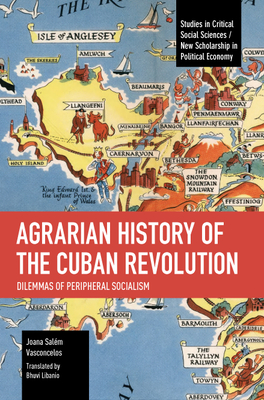Agrarian History of the Cuban Revolution: Dilemmas of Peripheral Socialism

Agrarian History of the Cuban Revolution: Dilemmas of Peripheral Socialism
In Agrarian History of the Cuban Revolution, the Brazilian historian Joana Salém Vasconcelos presents in clear language the complicated challenge of overcoming the condition of Latin America's underdevelopment through a revolutionary process.
Based on diverse historical sources, she demonstrates why the sugar plantation economic structure in Cuba was not entirely changed by the 1959 Revolution.
Vasconcelos narrates in detail the three dimensions of Cuban agrarian transformation during the decisive 1960s - the land tenure system, the crop regime, and the labour regime - and its social and political actors. She explains the paths and detours of Cuban agrarian policies, contextualized in a labour-intensive economy that needs desperately to increase productivity and, at the same time, promised widely to emancipate workers from labour exploitation. Cuban agrarian and economic contradictions are well-synthetized with the concept of Peripheral Socialism.
PRP: 294.50 Lei
Acesta este Prețul Recomandat de Producător. Prețul de vânzare al produsului este afișat mai jos.
265.05Lei
265.05Lei
294.50 LeiIndisponibil
Descrierea produsului
In Agrarian History of the Cuban Revolution, the Brazilian historian Joana Salém Vasconcelos presents in clear language the complicated challenge of overcoming the condition of Latin America's underdevelopment through a revolutionary process.
Based on diverse historical sources, she demonstrates why the sugar plantation economic structure in Cuba was not entirely changed by the 1959 Revolution.
Vasconcelos narrates in detail the three dimensions of Cuban agrarian transformation during the decisive 1960s - the land tenure system, the crop regime, and the labour regime - and its social and political actors. She explains the paths and detours of Cuban agrarian policies, contextualized in a labour-intensive economy that needs desperately to increase productivity and, at the same time, promised widely to emancipate workers from labour exploitation. Cuban agrarian and economic contradictions are well-synthetized with the concept of Peripheral Socialism.
Detaliile produsului









